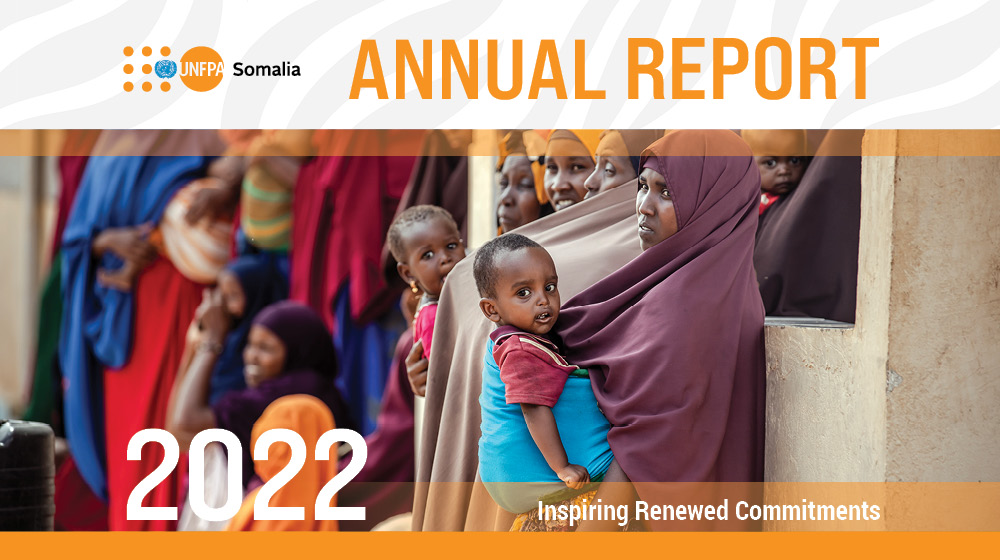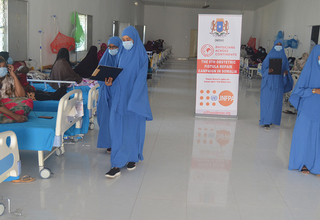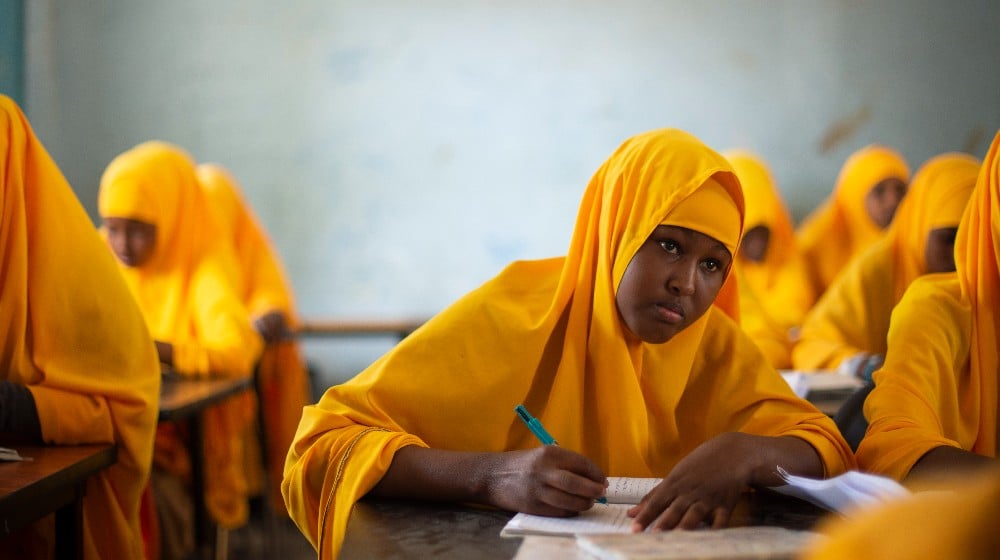-I can't control it and I have to go to the toilet all the time. Life has been very difficult, says 25 years old Ajan Jhama from the hospital bed. But at this moment she just feels pain from the operation. - I hope it was successful and I can go back to normal.
She's been operated that morning by Dr. Ibrahim Sayd and his team of doctors and nurses at the National Fistula Hospital in Borama.
-I had no problems when I delivered my first born, says Ajan. But when I was about to deliver my second one I got obstructed labour. I thought the baby was dead she says and looks down at her healthy boy Mohammed who is being nursed by the staff while she is hospitalized.
But during her delivery of Muhammed she paid a high price, and developed fistula, which often are the result of trauma during childbirth in situation where there is inadequate health care.
Woman with fistula are stigmatized in third world countries and becomes outcasts. It is also associated with female genital mutilation which is common in the Somali society.
There is more than fifty percent chance that she will be fully cured, says Dr. Ibrahim Sayd who runs the hospital which was opened in October 2008. It has 35 beds and a staffing of 13 people, where about a half of them work there as volunteers either as nurses or community midwives The hospital have four doctors, and two who are there for training.
Equipped with four operations theatres, they can treat between five to ten patients each day.
-During the operations we also act as a teaching hospital, and have medical students and nursing students to attend and learn, said Dr. Sayd.
The hospital will now be implementing partner for UNFPA national Fistula Campaign which was officially opened 20thNov 2011 by the Ministry of Health. UNFPA will cover the costs of the operation and the transport to the hospital.
-This is a very important hospital for all Somali speaking people. Child bearing health issues are very important for the government. It affects first of all the woman, but also their husband, and the surrounding community like relatives and neighbours. We are very grateful for the valuable contribution from the United Nations Population Fund (UNFPA) to the government. This will assist us in eradicate all cases of fistula. This campaign that UNFPA started will continue until there are more cases, said Director General Abdi Ahmed Nour from the Ministry of Health.
18 years old Nimo Mohamoud has already benefitted from the program and is now recovering on the hospital bed. She travelled from Gargera region to Dr. Sayd and his team of specialists in Borama.
- One and a half months ago I lost my baby more than seven months into the pregnancy, she explains. After that she got fistula. - I tried to stay far away from people because I could not control urinating. It was difficult because of the smell, she recalls. After the operation she is now fine again.
- Now I can go to the toilet when I feel the need, she says and smiles. I just hope it will be fine in the future also, but I want to wait five years with having a baby, because I want to be shore that everything is fine again, she said.
Hibo Noon Sikad got her life changed when she met Dr. Ibrahim. 18 years ago she came to this world with fistula. - In my first years I thought that everything was normal because my mother used to care for me, and I thought it was normal. But when I grew older I noticed that something was wrong, she says.
-I have never played with other kids during my childhood. I was always alone and never had the chance to go to any school, she says while felling some tears.
Doctor Ibrahim explains that she was born with fistula, and she was only ten years old when he operated her the first time.
-Since then we have done three more surgeries, and now she is almost fine. But after a lost childhood she has a lot to catch up on, so now she stays here at the hospital, working as a volunteer, helping me with the operation of the hospital, says Ibrahim.
- I hope I can go to school and do the midwife training with a UNFPA scholarship, says Hiba when asked about her future aspirations.




